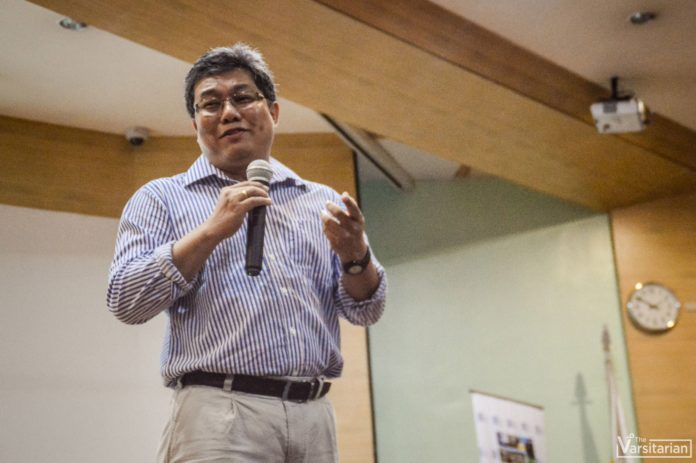Nov. 10 2016, 10:00 p.m. – THE IMPLEMENTATION of a federal system of government in the country will not be successful if its sole purpose is to speed up the peace process in Mindanao.
Benedicto Bacani, executive director of the Institute of Autonomy and Governance, described the idea that federalism was the only solution to end insurgencies in Mindanao as “tragic” for the peace process.
“If you sell federalism as the only solution, you will have a problem because you will have this unintended entanglement of the peace process with the national federal discourse,” Bacani said in a forum on Nov. 9 at the Miguel de Benavides Auditorium.
Bacani proposed charter change. “You have to provide genuine and meaningful autonomy which requires charter change,” he said, adding that a constitutional amendment should precede the shift to a new system of government.
Novel Bangsal, who heads the Congressional Policy and Budget Research Department at the House of Representatives, said the transition would be costly for the government.
“Are we really serious to face the challenge, in the sense that we are willing to go deep into our pockets to shoulder the transition? I think if we are really serious in pursuing federalism, at least we should have a ballpark figure of how much would it cost us,” he told the Varsitarian in an interview.
Jonathan Malaya, executive director of the PDP-Laban Federalism Institute, said the Philippines is suitable to a federal government due to its cultural diversity.
But Malaya said the shift from a unitary government to a federal form of government could take a decade.
“Hopefully by 2019 we can call for a plebiscite on the proposed change. Once we [have an edit] of the constitution then the transition period begins,” he said.
In a previous Varsitarian interview, former senator Aquilino Pimentel Jr., a staunch federalism advocate, said the country should have its “own version” of federalism based on the cultures of different regions.
READ: ‘Pilipinong’ bersiyon ng pederalismo, isinulong
UST political science professor Edmund Tayao presented a proposed framework based on the federal frameworks of other countries.
The forum, “Evolving The Right Model For A Working Philippine Democracy,” was organized by the UST Political Science Forum.

















